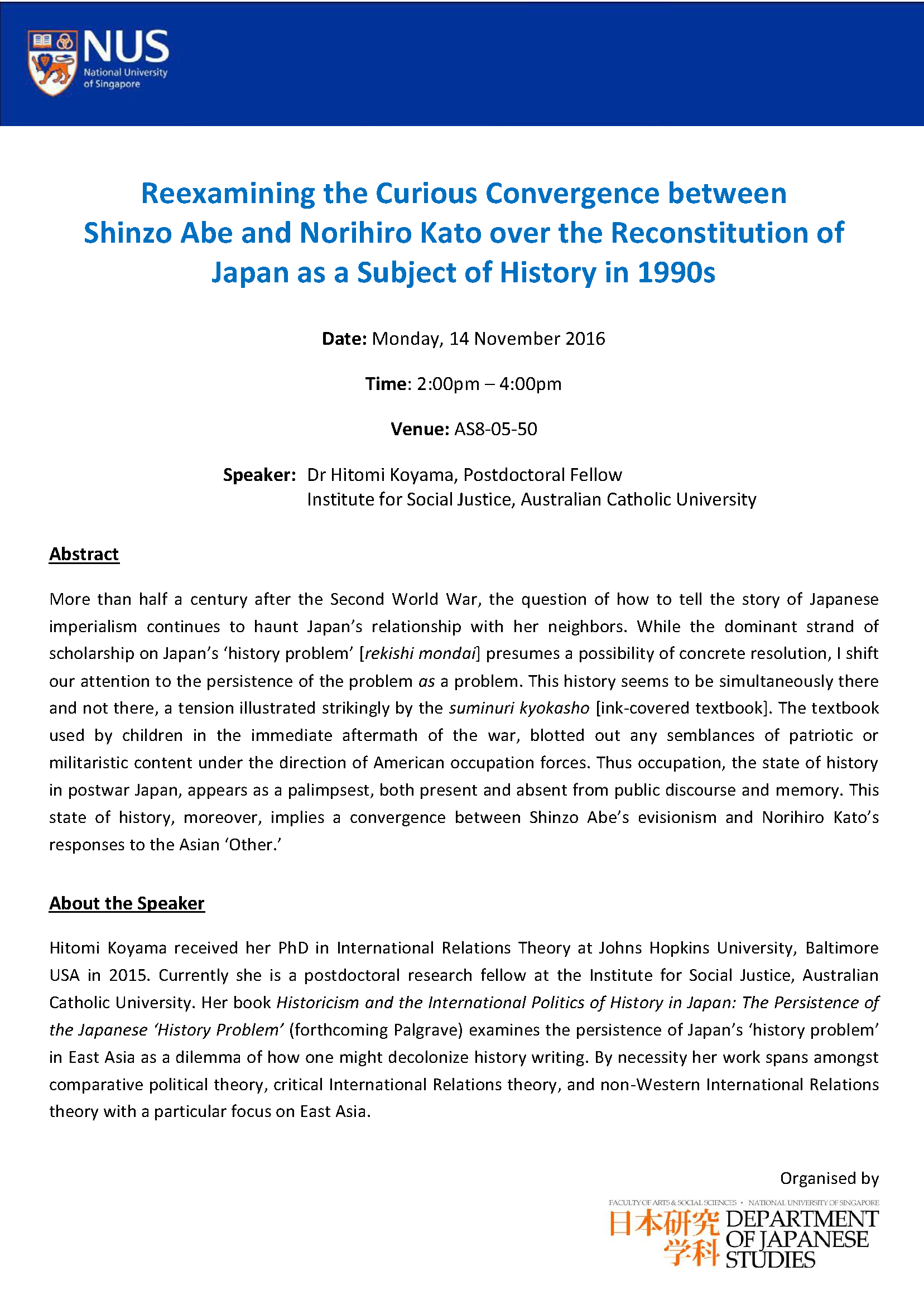Reexamining the Curious Convergence between Shinzo Abe and Norihiro Kato over the Reconstitution of Japan as a Subject of History in 1990s
Abstract
More than half a century after the Second World War, the question of how to tell the story of Japanese imperialism continues to haunt Japan’s relationship with her neighbors. While the dominant strand of scholarship on Japan’s ‘history problem’ [rekishi mondai] presumes a possibility of concrete resolution, I shift our attention to the persistence of the problem as a problem. This history seems to be simultaneously there and not there, a tension illustrated strikingly by the suminuri kyokasho [ink-covered textbook]. The textbook used by children in the immediate aftermath of the war, blotted out any semblances of patriotic or militaristic content under the direction of American occupation forces. Thus occupation, the state of history in postwar Japan, appears as a palimpsest, both present and absent from public discourse and memory. This state of history, moreover, implies a convergence between Shinzo Abe’s evisionism and Norihiro Kato’s responses to the Asian ‘Other.’
About the Speaker
Hitomi Koyama received her PhD in International Relations Theory at Johns Hopkins University, Baltimore USA in 2015. Currently she is a postdoctoral research fellow at the Institute for Social Justice, Australian Catholic University. Her book Historicism and the International Politics of History in Japan: The Persistence of the Japanese ‘History Problem’ (forthcoming Palgrave) examines the persistence of Japan’s ‘history problem’ in East Asia as a dilemma of how one might decolonize history writing. By necessity her work spans amongst comparative political theory, critical International Relations theory, and non-Western International Relations theory with a particular focus on East Asia.


